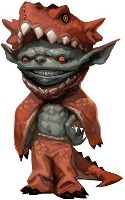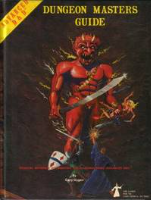(didn't realize I would make such a long post..again I get rambling and just long winded) I do it in a "top down" approach a lot like al e. also. mixed with the 'butterfly effect' for the world. I make the world/larger area map, detailing the area they start in and fleshing that out. The rest of the map I make generalizations of what/who is going on there, major NPC people involved, just a sentence or 2 that i can keep track of as time goes on, without getting too much detail to bog me down (sort of the 'back cover' blurb on a novel giving you an idea of the book). I then setup some sort of initial push that they can bite onto to get the ball rolling of where they started at .After that its freeform on what they do, how they do it, and where they go to deal with, or try to work out whatever storyline they make. Like the town north of them my have "Small town, slowly being overrun and strong fisted into submission by a local mercenary group wanting to gain power the villagers want to rid the town of them" and just update the notes for it weekly with a small blurb of what happened during the passage of time. The world changes and goes on if they are there or not..if they show up, they get whatever state it is currently in. And no town/city is an island, they all have relations/conflicts/dealing with other local towns so players always can find something they can want to bite onto to keep on the move around the map. I strengthen the storylines they engage in, fleshing it out on the map and details of that area based on what they did with cause/effect. I then Think of ways that "they did X here, which changes the course of the happenings, so an effect of that is Y now in this other town alters course". and add a few words to my town notes. (all my towns on the map are tokens on the map layer I can add to the GM notes on). Did they find the town X of strongarm mercs? did the help the people? If so, the mercs are based over in town Y (from my notes)..and they aren't happy about this group of random people messing with their business..depending on how they handled it. (did they negotiate? did they fight them off?) I let the 'butterfly effect' kick in and note it on town Ys notes. Every major action of the players has an effect, even if they don't see it as such. One example of how I use butterfly effect to make stories off just a sentence and their actions upon it is they did what they though was a simple trade of items. They needed a vehicle, they stop at a small town and find a farmer with an old flatbed truck that runs. They offer to trade a plasma cannon and some tech armor for the truck (its all they had worth giving up). the man was doubtful as hes never seen one before (its a lowtech farm town) until they demonstrate it vaporizing a tree with one shot, and no amount of conventional pistol/rifle shots hurt the armor. They convince him its amazing for hunting wild game. The man happily agrees as this is a 'high tech futuristic gadget' to him.They move on thinking nothing of it, that it was just some random village they though I setup to get them a vehicle. In my notes I had " small low tech farming village where the guy with the truck and in door plumbing is the 'fancy' guy of the town, and he has dreams of power and something more of life". So a few months later they pass thru, forgetting all about it. to find out hes taken this plasma cannon, declared himself king of this village, and forcing the people to wage war in his name of neighboring villages using his "god gun" to wipe out dozens of people that appose him at a time. They feel responsible and now have a new story they can or cannot try to work out how to deal with. None of it was planned, or expected. 2 sessions of situations all came from the players actions, and a small sentence explaining what the village was about and I ran with it based on what they players did, fleshing out the cause/effect of their actions. I try to do it in the old "hands off god" approach I guess. I setup the world, filling in details of 'vague moving storylines' of the world as a whole ,and basic local tales, give it all a kick to get it spinning, and let the players make their own story which by group agreements pick where/when/how they go places. All making storyline that get more complex for them just because of them interacting with this world. There is no pre designed storylines, or deep plots (until they encounter a snippet of notes I have that they are interested in), or even planning ahead of where they will go, or what they 'need' to do. I give them a box of legos, what they build with it, and what pieces they want to build it with its their choice, even if they dont know what they final built thing will be. Note: keep in mind not all players like this style so make sure they are onboard beforehand. Most my group is friends I've known a long time, and my son and his friends and know to expect it. Its been hit or miss on randoms we found from Roll20. Some enjoyed it a lot, some felt lost and confused without a hard lined, well defined module like storyline to follow. (not that they was bad players, quite the opposite..just they play with the "GMs job is to give us a storyline" style). Some of them liked the freedom of choice on what to do, while the others felt hopeless on what "I expected them to do" because they had no well outlined and obvious 'story arch' to complete. Just keep that in mind. Both are perfectly fine playstyles. Just they don't seem to mix well as far as player styles when trying to do the other as GM.







